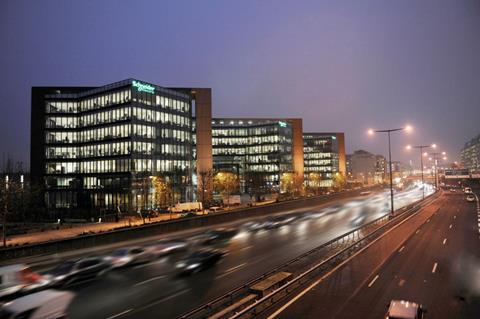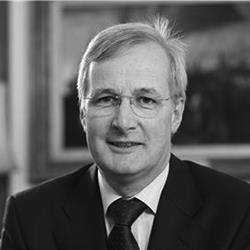Industry figuresÔÇÖ grand tour of the worldÔÇÖs most sustainable buildings takes us to Le Hive in Paris

If Cliff Richard had been a sustainability consultant this is the summer holiday he would have taken. A grand tour of the worldÔÇÖs most sustainable buildings where the sun not only shines brightly but glints from photovoltaic panels, and where the sea is blue, perhaps partly because all the grey water in the nearby town is being recycled.
Both the UK and the rest of the world have a lot to offer the sustainability tourist from the Co-op headquartersÔÇÖ sparkling glass facade in Manchester to the bees on the roof of Le Hive in Paris. Leading industry figures have picked the buildings they think should inspire our efforts towards zero carbon.
Here, Quentin Leiper, group chief engineer, Carillion, explains why Le Hive in Paris is his breakthrough building of choice. The other stops on the Grand Tour are as follows: , , and and
Le Hive, Paris


To identify buildings that have made a real breakthrough in sustainability is a daunting task. To me, this is not just about the environmental challenges (embodied and ÔÇťin useÔÇŁ carbon), but also about the people using the building and its legacy.
The building I have chosen is one of many buildings that are exemplars in sustainability: my breakthrough building is Le Hive in Paris. Hive is an acronym for Hall de LÔÇÖInnovation et Vitrine de LÔÇÖEnergie.
Leadership and ownership are important to delivering sustainability and Schneider Electric has really demonstrated these attributes in refurbishing its headquarters building. It has delivered impressive energy performance through design and using intelligent systems, but, significantly, has engaged with staff through behavioural education to achieve a 50% reduction in consumption. This engagement also delivers benefits in waste and water reduction and recycling.
The building is the first in the world to be certified as ÔÇťOutstandingÔÇŁ by the BREEAM In-Use assessment method ÔÇô it got six stars, apparently.
Importantly, there has also been a huge focus on the comfort, happiness and security of the buildingÔÇÖs users, evidenced by the health and welfare scores which are among the highest of the nine BREEAM categories that were scored.
Finally, as a beekeeper, I was delighted to see that the company keeps beehives in the grounds of the building. This is a lovely link to its name and a demonstration of continued consideration for (bee) communities and the environment.
Quentin Leiper, group chief engineer, Carillion




























No comments yet